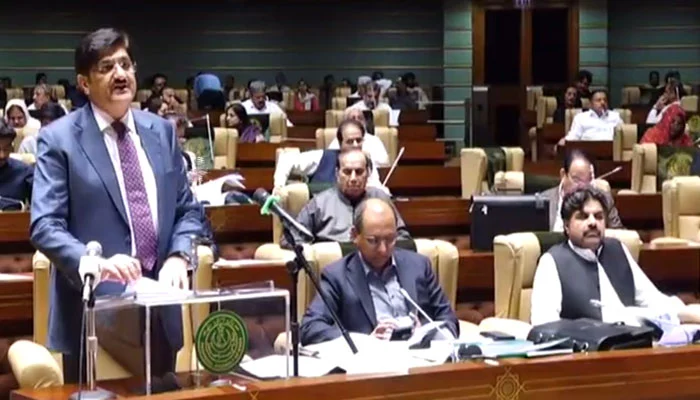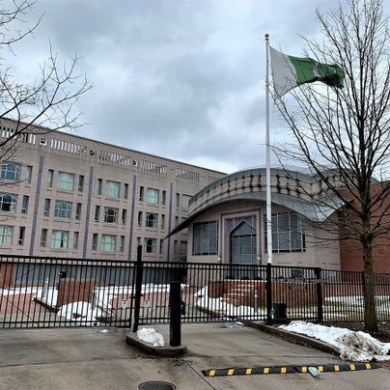Sindh Chief Minister Syed Murad Ali Shah, who also serves as the province’s finance minister, presented a budget of Rs2,247.6 billion for the financial year 2023-24 in the Sindh Assembly.
The budget emphasized the rehabilitation of flood-affected individuals and social protection for the poor.
The total revenue receipts for the provincial government are estimated at Rs2,209.79 billion, showing a 31.56% increase compared to the previous financial year. The estimated expenditures stand at Rs2,247.58 billion, resulting in a shortfall of Rs37.795 billion.
A significant portion of the development expenditure, Rs30 billion, has been allocated for the district Annual Development Project (ADP). Education has been recognized as a vital investment, with an allocation of Rs312.25 billion, reflecting a 7% increase over the previous year’s budget. The chief minister emphasized the importance of improving access to equitable and quality education.
The budget also addresses healthcare infrastructure and services, with over Rs233 billion spent in the previous fiscal year. For the upcoming year, Rs214.55 billion is proposed for non-development activities in the healthcare sector.
In the transportation sector, Rs13.4 billion has been allocated for the advancement of the transport and mass transit system, representing a 92% increase compared to the previous budget. The government aims to provide safe and modern transport facilities at affordable prices, including the Sindh Intra-District Peoples Bus service and the expansion of the fleet with 500 diesel hybrid buses.
Law and order remain a priority, with an allocation of Rs143.57 billion for the next financial year, reflecting a 15% increase over the previous year. The chief minister emphasized the commitment to ensuring peace and security in the province and supporting law enforcement agencies.
The budget also includes the announcement of the Sindh Safe Cities Project (Phase-I) for Karachi, with an allocation of Rs4.5 billion. The basic salaries of government employees in grades 1 to 16 will see a 35% increase, while employees in grades 17 and above will receive a 30% raise. Pensions will increase by 17.5%, and the minimum wage will rise from Rs25,000 to Rs35,550.
To address the irrigation system’s challenges, Rs25.70 billion has been set aside, including funds for silt clearance, system repair, maintenance, and the Salinity Control and Reclamation Programme.
The budget also focuses on initiatives for flood-affected individuals, with funds allocated for school rehabilitation and reconstruction. Chinese grants of Rs7,659 million will be used for the rehabilitation and reconstruction of schools. Additionally, various projects supported by international cooperation will contribute to relief and rehabilitation efforts in flood-affected areas.



